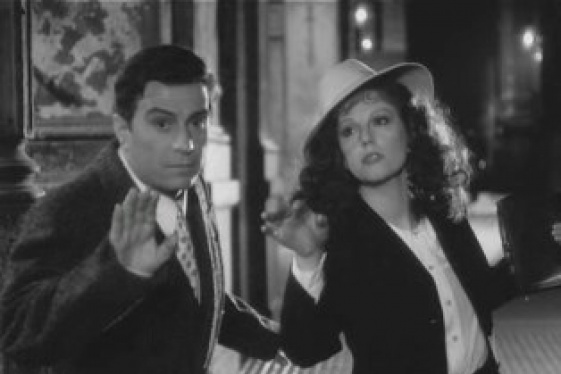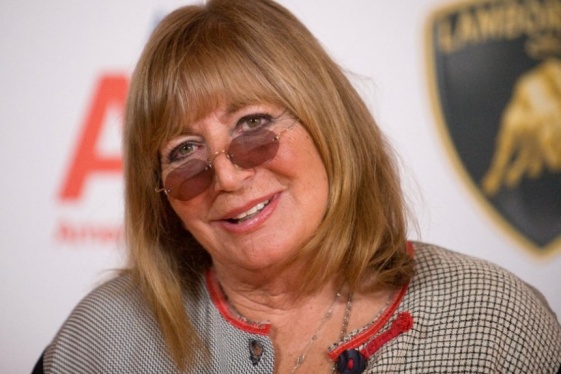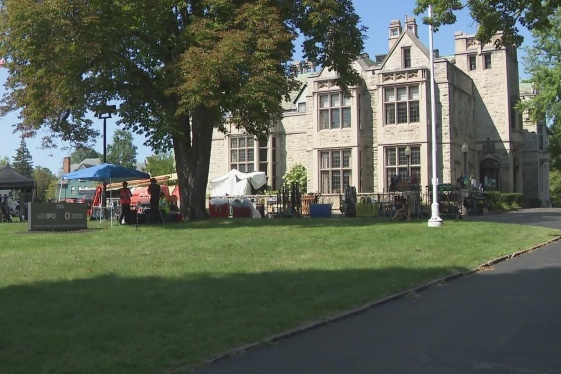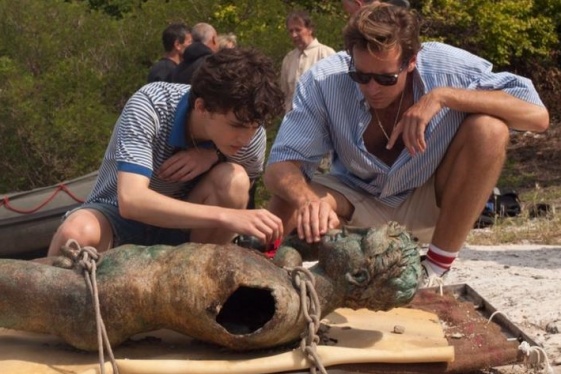

Anna Magnani was the anti-diva par excellence, the female icon of the neorealism. Among the few Italian personalities that achieved a star on the Walk of Fame of Hollywood, Anna Magnani represented the ideal of an extraordinary woman always balancing a surly power and a research of tenderness.
For a long time it has been thought that she was born in Egypt. Her problematic family origins made difficult to reconstruct the early years of her life. It is certain that she was born in Rome on March 7th of 1908 from Marina Magnani, a seamstress native of Fano in the Marche region.
The actress never met her father and she was entrusted to her maternal grandmother. Her mother moved to Alexandria, Egypt, so Anna was raised from her grandmother and she never had a real relationship with her mother.
She had her first job opportunity from Vittorio de Sica, who was the first to give her a leading role in a movie: in 1941 Anna Magnani starred in "Teresa Venerdì" (Friday Theresa) as Loretta Prima.
She gained international renown as Pina in Roberto Rossellini's masterpiece "Roma Città Aperta" (Rome, Open City). The director Rossellini was also her life partner for a few years. Her harrowing death scene – at the hand of a Nazi – while she was chasing the truck with her husband inside, remains one of cinema's most famous moments. The movie gave her the Nastro d'Argento for Best Supporting Actress. In 1948 she starred in "L'Amore", the last Rossellini movie of her career.
On march 21th of 1956, the roman actress was honored with the Academy Award. It was the first Oscar ever for an Italian performer. The other nominees were fantastic actresses such as Katharine Hepburn, Susan Hayward, Jennifer Jones, Eleonor Parker. But the panel of the judges was bewitched from her performance in "La Rosa Tatuata" (The Rose Tattoo): the intensity of the dramatic scenes led her, in the same year, to win also the Golden Globe.
In her striking career, she won an Academy Award, five Nastro d'Argento, three Golden Globe, two BAFTA Awards, two David di Donatello. Her career ended in 1972 with the movie "Roma" by Federico Fellini. The Master strongly desired her participation. Walking around the streets of Rome with a suspicious smile, she closes a door on the camera saying good-bye to the director. This was her last scene: she died in Rome on September 26th of 1973.
The USA had great rewards for Anna Magnani after her death. In 2002, The Museum of Modern Art of New York dedicated to her a retrospective with the showing of the 14 most important movies of her career. Just few personalities got such an important tribute from MoMa. "Divine, simply divine" this is how Time magazine described her.
Eduardo De Filippo, one of the most important actors and playwrights of the '900 in Italy, said: "Anna is creature of theater and cinema that will never be matched in history. It's impossible! At the debut of Medea, directed by Franco Zeffirelli, she was scared about her voice in the theater. She was used to work with microphones. She asked me to meet her. At the end I told her: Anna you don't even need your voice. You talk with your hands".
The Italian poet Giuseppe Ungaretti wrote: "Anna I heard you scream "Francesco!" behind a truck! I'll never forget you!"
You may be interested
-
New York Italians Movie Night: "C'eravamo ta...
Dear Friends, New York Italians in collaboration with Fordham University, Department...
-
'A League of Their Own' director Marshall dea...
Actress and director Penny Marshall, whose love of sports made her a regular in the Los An...
-
'Avengers: Infinity War' Directors Inducted I...
The Russo Brothers were a pair of the Marvel Cinematic Universe's best directors even prio...
-
'Boardwalk Empire' Season 5 News: Vincent Pia...
Recently, actor Vincent Piazza, who plays up-and-coming gangster Lucky Luciano on the show...
-
'Bottom of the 9th': Film Review
With films like Two Family House and City Island, director Raymond De Felitta found easy c...
-
'Buongiorno Papà' vince Nice Festival Usa
'Buongiorno papà' di Edoardo Leo, film sui quarantenni single in Italia, interpretato da R...
-
'Cabrini' film features nearly 40 Buffalo loc...
Parts of Western New York have transformed into movie sets as crews filming "Cabrini" take...
-
'Call Me by Your Name' and 'The Shape of Wate...
The Los Angeles Film Critics Assn. had lots of love for Luca Guadagnino’s “Call Me by Your...













